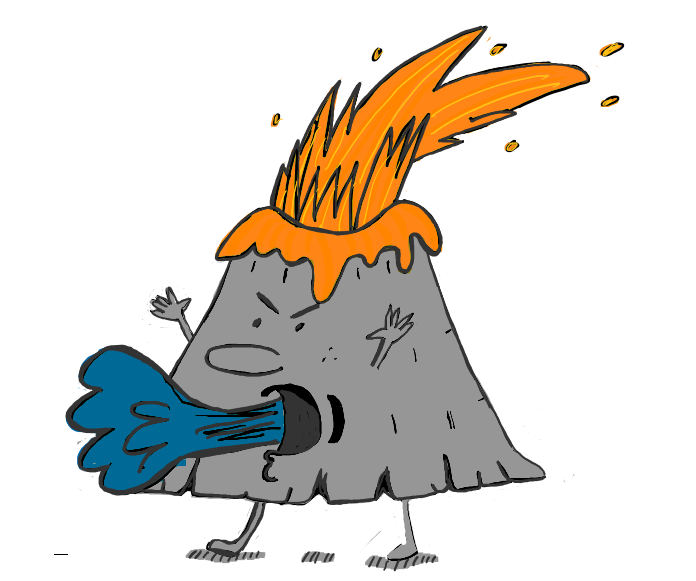ANGER
Normal Anger
Anger is a normal human emotion. Everyone feels annoyed, frustrated, irritated, or even rage time to time.
Anger usually goes hand-in-hand with other feelings too, such as sadness, shame, hurt, guilt, or fear. Many times people find it hard to express these feelings, so just the anger comes out.
In a controlled manner, some anger can be helpful, motivating us to make positive changes or take constructive action about something we feel is important. But when anger is very intense, or very frequent, then it can be harmful in many ways.
Problems Associated With Anger
Uncontrolled anger can cause problems in a wide range of areas of your life. It may cause conflicts with family, friends, or colleagues, and in extreme situations it can lead to problems with the police.
But some of the other problem effects of anger may be harder to spot. Often people who have a problem with anger feel guilty or disappointed with their behaviour, or suffer from low self-esteem, anxiety, or depression.

Do I Have A Problem With Anger?
Perhaps you have already identified that anger is a problem for you, or someone else has mentioned it to you. But if you are not sure whether anger is a problem for you, consider the following questions:
- Do you feel angry, irritated, or tense a lot of the time? ·
- Do you seem to get angry more easily or more often than others around you? ·
- Do you use alcohol or drugs to manage your anger? ·
- Do you sometimes become so angry that you break things, damage property, or become violent? ·
- Does it sometimes feel like your anger gets out of proportion to the situation that set you off? ·
- Is your anger leading to problems with relationships, such as with family, friends, or at work and college? ·
- Have you noticed that others close to you sometimes feel intimidated or frightened of you? ·
- Have others mentioned that anger might be a problem for you? ·
- Do you find that it takes you a long time to ‘cool off’ after you have become angry or irritated? ·
- Have you ended up in trouble with the police as a result of your anger, for example, getting into fights? ·
- Do you find yourself worrying a lot about your anger, perhaps feeling anxious or depressed about it at times? ·
- Do you tend to take your frustration out on people less powerful than you or those you love, rather than dealing with the situation that triggered your anger?
How Can I Manage My Anger Better?
Anger management is not just about counting to ten before you respond (although that is often a good idea). It is about helping you to better understand why you get angry, what sets it off and what are the early warning signs, and about learning a variety of strategies for managing those feelings more constructively.

Triggers & Early Warning Signs
One of the first steps in managing your anger is to identify what types of situations usually trigger your anger. Make a list of the things which usually set you off, for example: being cut up in traffic; people not messaging you back; dishonesty; feeling disrespected.
Some of these situations are unavoidable. However, you can control your response.
Once you have finished listing your common trigger situations, make a separate list of the warning signs for your anger. What is it that usually happens in your body when you get angry? Becoming aware of your body’s alarm bells helps you to spot anger early on, gives you a better chance of putting other coping strategies into practice. Some common warnings are: tightness in chest feeling hot or flushed, sweating; grinding teeth; tense muscles or clenched fists; pounding or racing heart; biting your nails.
Why Am I Angry?
When you notice these warning signs, stop and ask yourself what it is that is making you angry. Often there will be something going on that is quite reasonable to feel angry about, so allow yourself to acknowledge this. But it is also important to recognise its true cause, so that we don’t respond disproportionately or unreasonably (eg. taking out the anger on the wrong person such as your Mum when it is your boss you are angry with).
Cooling Down
When you notice yourself becoming angry, there are a number of techniques which you can use to ‘take the heat out’ of your anger. These include:
- Time Out: Leave the situation and ‘cool down’ for a period of time. Allow yourself to think things through before you act.
- Distraction: If you cannot change the situation, distract yourself by listening to music, calling a friend to chat about something else, or do something absorbing.
- Humour: While it is not always possible to just ‘laugh your problems away,’ it can help you to take a step back from your anger and diffuse things.
- Relaxation: Just as our bodies are strongly affected by our emotions, we can also influence our emotional state with our physical state. Relaxation techniques and physical exercise can all help to reduce anger.
Self-Talk and Helpful Thinking
How you are thinking affects how you are feeling, so focussing on negative thoughts such as “this is so unfair” will maintain the angry feeling. Make a list of more balanced statements you can say to yourself before, during and after difficult situations. For example:
Before: ‘I know I can handle this, I can keep my anger under control and can take time out if I need to.’
During: ‘Keep breathing and stay relaxed – there is no need to take this personally. I can manage this.’
After: ‘I handled that well. Even though I felt angry I didn’t raise my voice too much and I think I got a better result.’
Long-term Anger Management
Assertiveness Skills A key strategy is learning to be assertive. Assertiveness means expressing your point of view in a clear way, without becoming aggressive. Finally, because anger is often an automatic response, these techniques require a lot of practice and are discussed in more depth in the link Assertiveness.
Combating stress, worry and negative thinking : Stress is something that is a normal part of life. However, some people suffer from stress, anxiety and depression, which is so frequent and can have a debilitating effect on their moods, commonly manifesting as anger.
If you find it a struggle to do this alone or are concerned that your anger may be a symptom of an underlying condition, please get in touch with the counselling team for more support.